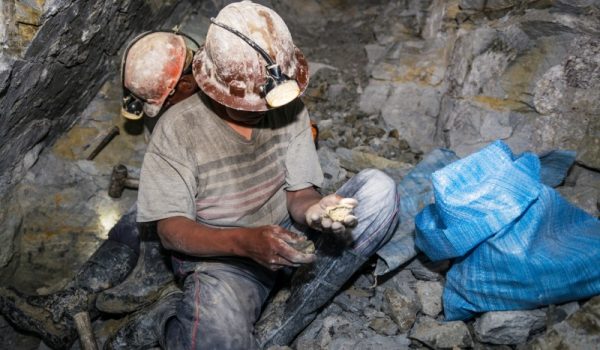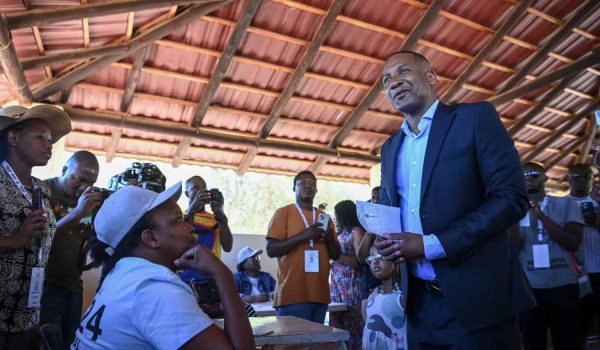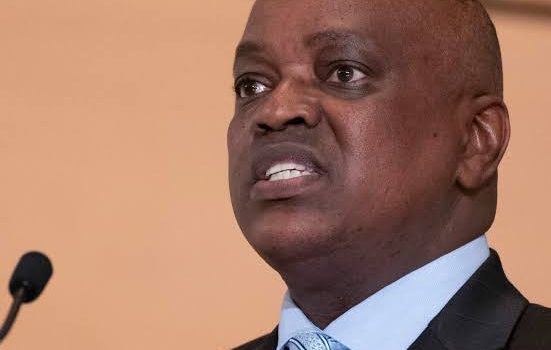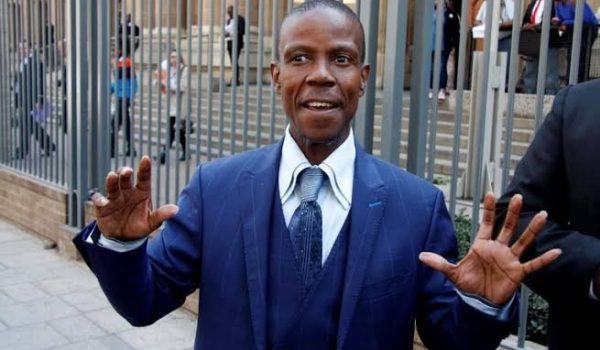The Gauteng MEC for Finance and E-Government, Honorable Nobantu Nkomo expressed her gratitute for the opportunity given to her to present the 2021 Medium Term Budget Policy Statement and the Adjustments Budget to the Parliament. She indicated that this is the third MTBPS of the 6th Administration under the leadership of Premier David Makhura.
She began by tabling the following documents for consideration.
- The Medium-Term Budget Policy Statement 2021.
- The Adjusted Estimates of Provincial Revenue and Expenditure 2021.
- Adjusted Estimates of Capital Expenditure 2021.
- A copy of her Speech
The MTBPS that is presented today comes a few weeks after the country’s successful 6th democratic Local Government Elections. “These elections were different from the previous five. They were organised in a short period of time … in about 42 days, and the contestation amongst all political parties was far more intense.” Nobantu metioned.
She further alluded that the elections culminated in a peaceful transfer of power in some of the municipalities in the province and around the country. According to the MEC, this demonstrates the strength and maturity of our democratic system, and the respect that people have for the supremacy of the Constitution.
“As Gauteng Provincial Government, we once again congratulate the people of this province for exercising their democratic right to vote in the Local Government Elections. In doing so, the people of this province gave all of us, as public representatives from across the political divide, a clear message to prioritise service delivery to communities above all other interests.
Honourable Members, this emphasis on the Constitution and how it has shaped our democratic system is important because tomorrow, the 10th of December, our country marks the 25th anniversary of the signing into law, of the Constitution of the Republic of South Africa by Isithwalandwe/ Seaparankwe, President Nelson Mandela in Sharpeville in 1996.”
President Mandela choose Sharpeville for that occasion, to remember and to honour men and women who faced the most brutal of force Apartheid regime. They paid the supreme price for justice and freedom.
The salient emphasis of the Constitution, which we are marking its 25th anniversary tomorrow, magnifies a point that, Human Rights are Women Rights too, since both rights are inextricably linked.
The 10th of December is also celebrated as the day on which the United Nation General Assembly had adopted the Universal Declaration of Human Rights in 1948.
This day was to be known as International Human Rights Day throughout the world and this year, both our Government and the United Nations have adopted complimentary themes. The theme adopted by our Government is “the Constitution as catalyst for achievement of Equality”.
The United Nations, on the other hand, has adopted a theme “Equality as the solution to provide opportunities within and access to a fairer and more inclusive society”.
Honourable Members, these two themes elevate an important message of non sexism and equality not only in our country but throughout the world. It is until we win a struggle for equality that we can defeat the demon and scourge of gender-based violence.
In our country Madam Speaker, gender-based violence has reached unbearable proportions wherein every day we read about violence, displacement, and brutality against women, children, and members of the LGBTIQ+ community.
It has become a pandemic of a “special type” which requires extraordinary interventions and actions from all sectors of society in partnership with Government.
Therefore, Honourable Members, these themes galvanize everyone in our country and the world to “Stand up for human rights” as we review and reflect on our country’s lived experience of Constitutionalism, working to strengthen the constitutional values of human dignity, the achievement of Equality and advancement of human rights, freedom, non racialism and non sexism.
The third significance directly linked to the two points I have just traversed above, is that the 10th of December, marks the end of 16 Days of Activism for No Violence against Women and Children.
This is yet another campaign adopted by the United Nations together with International Human Rights Day. This year we mark this campaign under the theme “The Year of Charlotte Mannya Maxeke – 16 Days of Activism – moving from awareness to accountability”.
Government has declared Gender Based Violence a scourge and another pandemic and to this end, gender machinery in our country must move one gear up from awareness to accountability.
We must all of us be activists against GBV in our homes, communities, work and positions that we hold in society. Let us challenge cultures and practices that perpetuate gender inequalities and abuse of women and children at personal and societal level.
Honourable Members, as we present this year’s MTBPS, we must acknowledge the difficult context within which we must fund the implementation of our provincial priorities over the next three years.
This was demonstrated on Tuesday when Statistics South Africa released the latest Gross Domestic Product figures showing that South Africa’s economy contracted by 1.5 per cent quarter-on-quarter, on a seasonally adjusted basis, following four consecutive quarters of negative growth.
This latest contraction is largely reflective of the effects of the civil unrest in July as well as pressures of tighter COVID-19 lockdown restrictions during the quarter. Although the contraction was somewhat expected, it was more severe than the South African Reserve Bank’s latest forecast of -0.6 per cent. This also implies that GDP is now at the level last recorded in the first quarter of 2016.
These difficult economic times were also reflected in last week’s Labour Force Survey report released by Statistics South Africa which showed that our country’s third quarter unemployment rate reached a record 34.9 per cent from 34.5 per cent in the second quarter. What was also disheartening was that the report showed that Gauteng’s unemployment rate reached 37 per cent in the third quarter from 34 per cent in the previous quarter.
We are particularly concerned about the high unemployment levels in our province, especially among our young people. It is a matter of grave concern to us that in a relatively rich province such as Gauteng, we continue to see high and deepening levels of poverty.
However, we are of the view that the economic growth and recovery interventions that we are implementing, in partnership with the private sector, labour and the rest of society, which are aligned to our Growing Gauteng Together, Vision 2030 plan, are the most direct and effective route towards addressing the socio-economic challenges we are facing.
Therefore, the 2021 Adjustments Budget that we are presenting today continues to focus on four priority areas, namely:
- Defeating the COVID-19 pandemic.
- Re-igniting the Gauteng economy.
- Recalibrating social policy; and
- Improving governance.
The MEC further stated that the risk presented by COVID-19 to the speed and sustainability of economic recovery and growth at both national and provincial levels cannot be over emphasised.
Since the outbreak of COVID-19 in our country, Gauteng has been the epicentre of this pandemic. On 07 December, this province passed the 1 million mark with 1 005 360 COVID-19 cases from 06 December.
The province also entered the 4th wave on Tuesday, 01 December, and the rate of increase in the number of new COVID-19 cases has been significantly higher in the past month, compared to any period during this pandemic. The new Omicron variant that was first detected in our province, has been linked to this rapid transmission.
The rate of severe illness and hospitalisations due to COVID-19 is also increasing, albeit at a slower rate, and majority of these admissions are not vaccinated against the virus. We encourage all eligible people in the Province to get vaccinated against COVID-19.
In order to beat the adverse effects of the 4th wave, we have expanded and strengthened the vaccination drive to ensure that as many people as possible are protected from severe illness, hospitalisation, or death in the event that they contract COVID-19.
The vaccination programme is free and open to all people in South Africa regardless of nationality. According to information from the Gauteng Department of Health, as of the end of November 2021, this province had vaccinated more than 4.4 million people. The number of those who were fully vaccinated in our province stood at just over 3.6 million people.
In addition to vaccination, we call on our people to continue practicing non-pharmaceutical interventions to limit the spread of COVID-19. These include wearing of masks, washing hands regularly with soap and water and avoiding large gatherings.
As Gauteng, we continue to make substantial resources available to fight COVID-19 and save the lives and livelihoods of citizens. The more people get vaccinated, the greater the chances of us fully opening all economic sectors and getting back to doing the things that we love most, including attending sporting, cultural and entertainment activities under the safety protocols of the new normal.
ECONOMIC OUTLOOK
The global economy
The global economy is expected to experience a stronger recovery in 2021. The International Monetary Fund projects the world economy to recover by 5.9 per cent in 2021, after contracting by 3.1 per cent in 2020. IMF has in fact revised up the growth prospects for advanced economies, while growth for Emerging Market and Developing Economies widely referred to in economic circles as the EMDEs was revised down.
South Africa’s economy
National Treasury estimates that the economy will grow by 5.1 per cent in 2021, and by 1.8 per cent in 2022. However, there are risks to this outlook, including setbacks in the fight against COVID-19, such as vaccine-resistant mutations, and the possibility that the electricity supply could become further constrained.
Gauteng economic outlook
Turning to the provincial economy, the real Gross Domestic Product by Region (GDP-R) of Gauteng rose pre-pandemic, from R1.1 trillion in 2017 to R1.2 trillion in 2019, though with a year-on-year growth rate of only 0.6 per cent in 2019.
In 2020, COVID-19 brought reduced demand in all trading partners and the need for lockdowns to slow the spread of the disease. These combined factors reduced the province’s GDP-R to R1 trillion, a fall of 6.8 per cent. Our forecast is that GDP-R for 2021 will increase by 4.7 per cent, recovering to R1.1 trillion, and will only surpass the pre-pandemic production levels in 2023.
Metropolitan municipalities were responsible for 90 per cent of Gauteng’s economic activity in 2020. The City of Johannesburg recorded the largest contribution at 44.3 per cent. It was followed by our administrative capital the City of Tshwane with 28.5 per cent. The City of Ekurhuleni accounted for 19.7 per cent of the Gauteng economy. The two district municipalities, Sedibeng, and the West Rand, accounted for a combined share of 7.5 per cent.
All of Gauteng’s municipalities recorded negative growth rates in 2020 as they suffered reduced demand and economic restrictions from the pandemic. The largest negative growth rate was recorded in Sedibeng, where GDP-R fell by 7.8 per cent, while the smallest was recorded in the City of Johannesburg, at 6.2 per cent.
In 2021, all municipalities in Gauteng are expected to recover and record positive growth rates. The highest forecast is for the City of Ekurhuleni, where GDP-R is predicted to increase by 5.1 per cent, and the lowest is for the City of Tshwane, which will see an increase of 4.2 per cent.
PROGRESS ON GAUTENG ECONOMIC RESPONSE
Honourable Members, we remain fully committed to accelerating the implementation of our response plan to preserve jobs, grow the economy and create new employment opportunities for our citizens.
Let me briefly reflect on the significant progress made on our economic response plan focusing on four key areas, namely:
- SMME & Township Enterprise Empowerment;
- Infrastructure as catalyst for corridor development;
- Partnerships with Private Sector; and
- Special Economic Zones/ High growth sector
We are promoting and facilitating investment in Special Economic Zones. We believe that SEZs are the investment anchors for development of network industries in the province and reduce the cost of doing business. As a result, various special economic zones are currently being developed in strategic areas in our province including the High Tech SEZ, Vaal SEZ, OR Tambo International Airport SEZ, Tshwane SEZ and Western Corridor SEZ.
SEZ-related construction projects began in August last year, and investments in these projects have increased from R2.5 billion to R4.3 billion. So far, the business case, all technical reports, master plans, and studies have been completed for the high-tech and science SEZ in Ekandustria. In addition, construction in the Eastern Corridor has begun at Bonaero Park where 9 per cent of construction has been achieved.
As part of SMME and township enterprise empowerment, the Gauteng Enterprise Propeller in this financial year allocated R10 million as its capital seed contribution towards the establishment of the retail support fund. This fund focuses on the full spectrum of the township retail value chain participation. The Gauteng Enterprise Propeller will increase its contribution to the fund by R10 million each year over the next two financial years.
The riots which saw shops vandalised and looted in July affected more than 18 000 jobs in Gauteng, and the cost to business in the province is estimated at R3.5 billion. In response, the Gauteng Provincial Government established an online application management system in October, with the option to use regional offices for direct disbursement of joint Gauteng Economic Propeller and Industrial Development Corporation rapid response funds for distressed township businesses. The support is up to R50 000 for informal businesses in grant funding and up to R1 million for formal businesses (50 per cent grant/ 50 per cent loan).
This is in addition to our Township Revitalisation Programme that we have been implementing to reposition the economy by using government’s significant procurement muscle to drive economic inclusion and broad-based black economic empowerment.
As part of this programme, we have criss-crossed this province, doing, amongst other things, registering township enterprises on the Central Supplier Database to ensure that they access opportunities in the public sector. During these outreach programmes, we also created awareness about E-Invoicing, a platform that allows service providers to submit their invoices online and track them, which is a major innovation in our ongoing effort to ensure that suppliers are paid on time.
Since April 2019, we have procured goods and services from thousands of township suppliers to the value of R7.4 billion.
Our message to township suppliers is that registering on Central Supplier Database is free. No one must charge you for a service that is offered free by government.
“Honourable Members, we are also encouraged by the progress that has been made to implement the National Economic Reconstruction and Recovery Plan, which focuses on infrastructure investment, localisation, reindustrialisation, and export promotion with an employment orientation, and a supportive policy environment.”
Given the size of our economy and contribution to the national Gross Domestic Product, Gauteng will benefit immensely from these national initiatives.
PROMOTING CLEAN GOVERNANCE
Honourable Members, we continue to make a steady progress towards clean governance in this province.
A total of seventeen departments and entities achieved clean audits in the 2020/21 financial year; an indication that government is making steady progress in strengthening financial management in line with the commitment to promoting clean governance and accountability in the usage of public funds.
This is the first time in this 6th Administration that we achieved this number of clean audits. It demonstrates our commitment to promote clean governance, accountability, and the integrity of our public institutions.
PRINCIPLES OF THE 2021 MTBPS
Honourable Speaker, the 2021 MTEF Budget that I tabled on 11 March 2021 was premised on four priority areas of the Gauteng COVID-19 Response Plan that would be the focus of resource allocation.
This budget was formulated against the backdrop of severe resource constraints and fiscal consolidation measures that were necessary in the short-to-medium term, and which are expected to end in the 2024/25 financial year.
As the financial year has progressed, we have gone through the 2nd and 3rd surges of the COVID-19 pandemic, and now find ourselves in the grip of the 4th surge, which will further dampen the positive signs of growth that were beginning to emerge, despite the structural impediments to that the Gauteng City Region, together with the rest of South Africa must overcome to break free of the low-growth trap.
This is over and above the Economic Recovery and Reconstruction Plan, which while formulated to revive the economy in the wake of the devastation caused by the COVID-19 pandemic, became more urgent after the destructive civil unrest that we witnessed in July 2021.
As was the case when tabling the 2021 MTEF Main Budget, there is very little fiscal leeway available to us, and this requires that we be conscious to the reality that we have to do more with the resources that we have, and actively seek alternative sources of funding for GPG projects and priorities – either through partnerships with the private sector, State-Owned Enterprises (SOEs), other spheres of government, or through bilateral or multilateral development partners, as a way of leveraging on resources outside of the fiscus in achieving the objectives of the 6th Administration.
To this end, Gauteng Provincial Treasury has formulated a document for review that not only clarifies the process of seeing and receiving official development assistance (donor funding), but also outlines the various sources – bilateral and multilateral – and mechanisms for accessing such funding, across infrastructure and non-infrastructure priorities. This will enhance the work that the Gauteng Infrastructure Financing Agency (GIFA) is doing in exploring mechanisms for accelerating the delivery of infrastructure as a means to achieving the ideals of the GGT2030 plan.
Working within this challenging economic environment, Gauteng Provincial Treasury is consistently looking at various ways to enhance our own revenue collection to supplement funding of provincial priorities. Own Revenue Enhancement Strategy was approved by EXCO on 31 March 2021. Gauteng Provincial Treasury is leading the roll-out of the Implementation Plan and will ensure that the relevant provincial departments and public entities remain committed to mainstream the identified activities towards optimal revenue collection.
The updated estimated revenue of R3.7 billion over and above the baselines, is projected over the 2021 MTEF. The information will be updated as and when information relating to new sources of revenue becomes available.
INFRASTRUCTURE SERVICE DELIVERY
Honourable Members, Gauteng Provincial Government remains committed to public infrastructure delivery. The National Development Plan 2030 provides us with a clear road map on how to eliminate poverty and reduce inequality. Infrastructure remains a key pillar in achieving these goals. Gauteng Provincial Treasury recognises that infrastructure delivery is dynamic and that as a collective, we must solve complex problems before the impact of our investment shall be visible.
Based on the portfolio of evidence submitted by the various departments, we have had to adjust the infrastructure budget to R11.1 billion. Of the total investment, R10.6 billion is allocated to the departments of Human Settlements, Health, Education, and Roads & Transport whilst the remaining R506.7 million is allocated to the departments of Economic Development, Social Development, Agriculture & Rural Development, Sport, Arts, Culture & Recreation, and Infrastructure Development.
We urge these departments to improve the impact of our investment on service delivery and social gains. In March 2021 with the appropriation of the main budget, we highlighted the need to place more focus on making infrastructure affordable and enhance value for money thus ensuring ‘effective, efficient and economical’ use of public funds related to infrastructure investments. We still have a long journey to walk before we will see the results and the intended impact.
Although it is difficult, under the leadership of the Centre of Government we remain committed to continue with our reform initiatives to address the institutional blockages as well as the weaknesses within the infrastructure value chain. Our specific focus will be on the implementation of standardised cost guidelines, ensuring that credible business cases are prepared before funds are allocated, and working with all stakeholders within the infrastructure space to ensure that we can respond to the challenges which face us.
The infrastructure cost guideline establishes prescribed standardised approaches for projects procured by Gauteng Provincial Government. The key objective is to make infrastructure more affordable and obtain value for money. This is in response to costs which are currently too high, poor output results and low investment impact in terms of service delivery and social gains. The infrastructure cost guideline will promote good governance and prudent financial management. Thus, it is an integral additional part of the evidence-based budget reforms introduced by Gauteng Provincial Treasury in the 2016/17 financial year.
ADJUSTMENT BUDGET ALLOCATIONS
Honourable Members, today we are adjusting the fiscal envelope upwards with a net increase of R7 billion. This means that the overall budget of Gauteng Provincial Government increases from R142.5 billion that I presented to this House in March to the adjusted appropriation of R149.5 billion.
The R7 billion includes a total of R4.3 billion that is added to the Provincial Equitable Share; of which R3 billion of this is to cater for the public sector wage settlement. This shows that as government we care about the plight of our workers in these difficult times.
As part of the Gauteng COVID-19 Response Plan, we are making the following allocations:
- 4 million towards the Health Human Resource Response to the COVID-19 HR Response; and
- 2 billion for the Presidential Youth Employment Initiative Funding towards:
- Basic Education Youth Employment Initiative – R1.1 billion.
- Health Staff and Assistant Nurses – R74.6 million; and
- Social Development Workers – R43.7 million.
To reignite the Gauteng Economy, we are making the following allocations:
- A total of R114.4 million is allocated for technical adjustments from underspending infrastructure projects towards the Tshwane SEZ (TASEZ) Infrastructure Expansion that is expected to not only boost manufacturing, but also provide much-needed jobs and stimulate the economy.
- A total amount of R86 million is a reallocation from surrendered surplus funds towards GEP Programme on Contract Financing to support SMMEs.
- A total amount of R366 million from internal reprioritisation of underspending infrastructure funding towards Gautrain Management Agency Patronage Guarantee shortfall. This amount will be clawed back from Roads and Transport in the 2022/23 and 2023/24 budget baseline.
In terms of Conditional Grant funding, we are making the following resources available:
- An amount of R13.3 million towards the Statutory HR Component of the Human Resources and Training Grant towards the January 2022 additional intake of Medical Interns and Community Service cohort
- An amount of R7.1 million towards the Mental Health Services Component of the HIV, TB, Malaria and Community Outreach Conditional Grant; and
- An amount of R25.6 million towards the Subsidy Component of the Early Childhood Development Conditional Grant.
During this adjustment budget process, a total of R665 million in Conditional Grants and R1.2 billion in Provincial Equitable Share funds is being rolled over to honour obligations from the 2020/21 financial year, together with R465 million that was reallocated from the previous financial year.
Resourcing provincial priorities
Honourable Speaker, despite the challenges that we face due to the Covid-19 pandemic, government remains committed to accelerating the implementation of provincial priorities.
As such, an amount of R1.1 billion is allocated to various provincial departments during this adjustments budget process to implement priorities of the province, as follows:
- Gauteng Office of the Premier is allocated 9 million to fund payments for Mental Health Care Users.
- Gauteng Department of Education is reallocated an amount of R378 million for personal protective equipment.
- Gauteng Department of Community Safety is allocated an amount of R8.3 million. This amount includes R3.2 million which is a reimbursement for stipends paid to patrollers on behalf of the Gauteng Department of Human Settlements and R3.8 million is for the agreement with SANRAL for the provision of law enforcement agencies to enforce traffic laws.
- Gauteng Department of e-Government is allocated a total amount of R79.2 million for the funding of SAP’s Unlimited During Deployment Licenses and Enterprise Support.
CONCLUSION
In conclusion, I would like to emphasise the point made earlier in my speech, that resourcing the budget in these resource-constrained times requires that there be an appreciation, particularly within government, that we owe it to those in whose name we serve, to jealousy guard these resources, and deploy them where they will make the maximum impact possible.
We have to inspire confidence in the public that we are judicious stewards who can be trusted with public funds. And we also have to be cognisant that having to make do with less resources, while we are expected to deliver more, is part of the pain that we have to endure in ensuring that we bequeath a sustainable fiscus to the generations to come.
Lastly, Honourable Members, let me express my appreciation to:
- Premier David Makhura for always be there to provide us with leadership, guidance, and support as we implement the programme of the 6th
- My colleagues in the Executive Council and the Premier’s Budget Committee for continuous engagement, support and teamwork.
- The Honourable Members of this House and in particular the Finance Portfolio Committee under the able leadership of Honourable Joe Mpisi for diligent oversight of our provincial finances.
- The Gauteng Provincial Treasury Team, led by HOD Ncumisa Mnyani for the tireless work and commitment to managing our provincial resources and supporting departments, entities, and municipalities; and finally.
- My family, who support and inspire me each and every day.








Comments